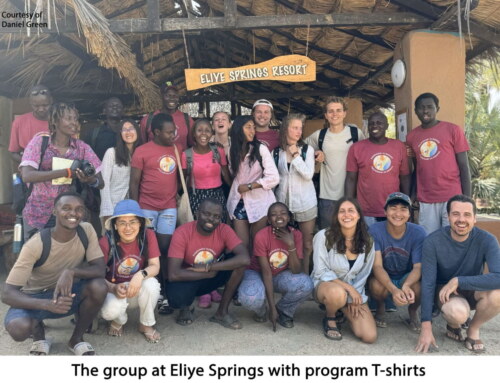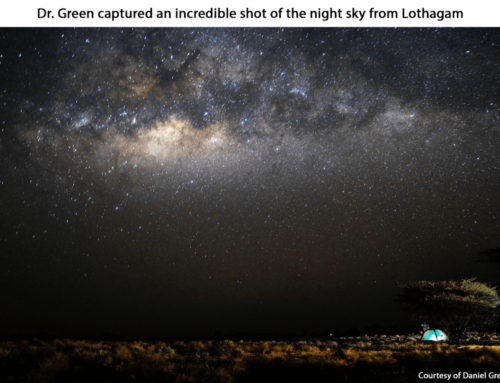Dear All,
Hello – many greetings. I’m Dino Martins and I am currently introducing the students in the Field School to some of the amazing plants, insects and other creatures around TBI as part of the second module of the course. We have spent the last few days looking at the plant community around TBI. Thanks to a single heavy downpour some weeks ago, the typically bare sands have been transformed into a carpet of wildflowers and grasses.
One of the most striking flowers that has appeared is the Flame Lily or Gloriosa (Gloriosa minor). This is a classic beauty of northern Kenya’s wild places. The flowers are borne on stalks above the short rosette of leaves.
Underneath the trees within the TBI compound there are swathes of green grass and dense carpets of ephemerals – lovely, fleeting wildflowers that appear for just a couple of weeks after the rain. The students have been hard at work measuring and describing the plant community using transects and quadrats to compare species compositions and ground cover patterns between sites.
Using simple quadrats of 50 cm by 50 cm, we found between 5 and 12 species in these tiny areas, with an average of about 8 species per plot. In some places the grasses and wildflowers are so dense that we just had to estimate the numbers. As we all worked in the sun, one of the camp dogs took a break in the shade…
After doing the transects inside the compound, we walked outside and repeated the exercise. We found that there was less ground cover where the goats had been feeding voraciously. We will be sharing more of what we’ve been finding shortly, so check back here soon!












